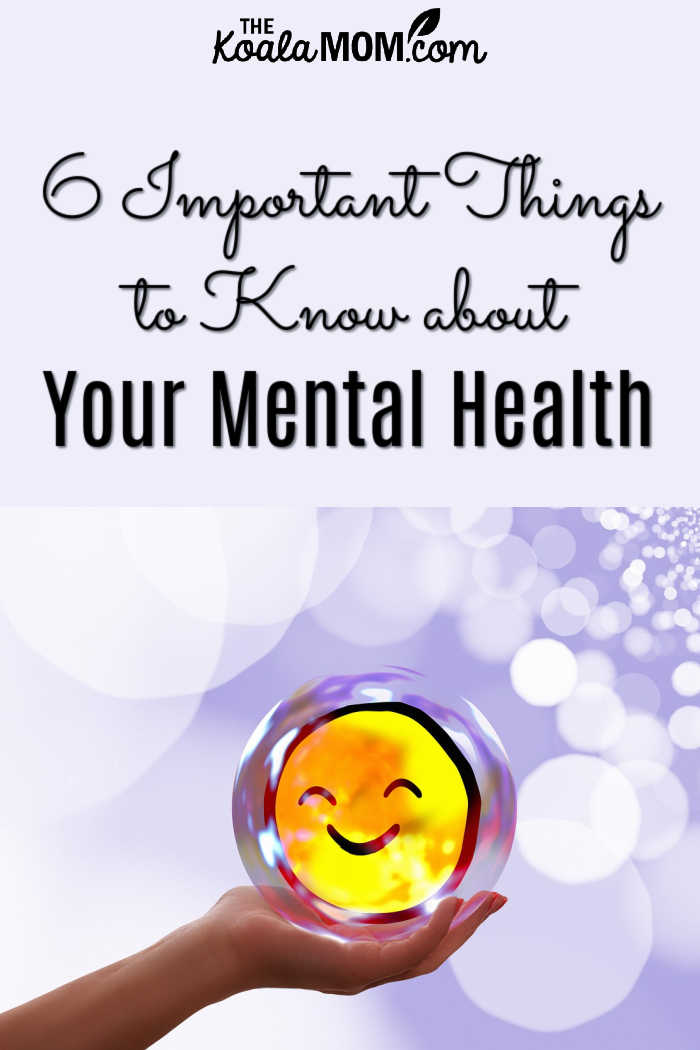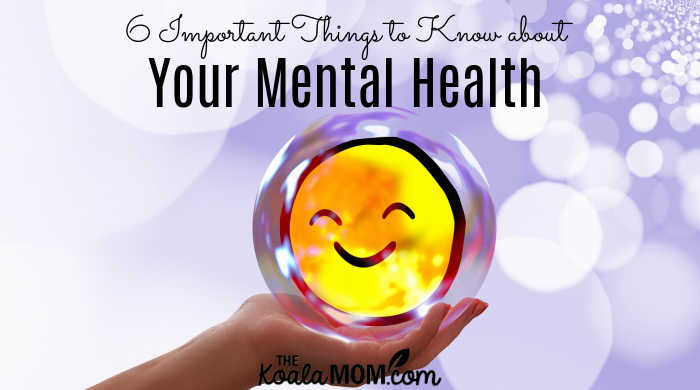Mental health is often misunderstood and overlooked. But it’s essential to care for your mental health just like your physical health. This blog post lists six things you should know about your mental health. When you’re mindful of your mental wellbeing, you can make sure that you’re staying healthy and doing what’s right for yourself.

Take care of yourself
Taking care of your mental health is just as important as your physical health. Eating well, exercising, getting enough sleep, and managing stress are vital components of staying mentally fit.
Building healthy habits such as following a nutritious diet, getting active each day, having good sleeping habits, and making time for yourself can do wonders for your mood and overall well-being. Poor nutrition, lack of physical activity, irregular sleep patterns, and constant overthinking result from not prioritizing your mental health—so make conscious decisions to maintain it.
It’s okay not to be okay
Admitting when you’re feeling down or anxious is a sign of strength and resilience rather than weakness. Everyone struggles from time to time, and it’s okay to reach out for help when you need it. In some cases when the problem is coming from a place of fear, like fear of blood or needles, specialized therapy can help you manage the fear and overcome it in time.
Mental illnesses should not be viewed with stigma or embarrassment. Instead, people should normalize the conversation about how to manage their emotions best and build healthy coping mechanisms. You can lead a healthier life with improved mental wellness by understanding yourself and your needs better.
Seek professional help
When mental health issues become too complicated, seeking professional help is an essential first step. Therapists, psychiatrists, and other trained professionals can help you to develop positive strategies for dealing with the challenges in your life.
While it’s natural to feel apprehensive about talking to a professional, remember that they have dedicated their lives to helping people like you understand the underlying causes of their issues and treat them effectively. Use the knowledge of experts to your advantage and start getting the help you need today. With just a few small changes, you could feel more balanced than ever before.
Avoid alcohol and drugs
Mental health problems can be hard enough to deal with on their own, but the situation worsens when alcohol and drugs are added into the mix. While it can be tempting to go down that road to cope, it’s essential to recognize and resist the urge to self-medicate. Alcohol and drugs impair your judgment, distort your thinking, increase anxiety, and have intense and dangerous long-term consequences for you physically, mentally, socially, and emotionally.
Simply put: substance use is not an effective coping mechanism for mental health issues—it makes them worse. Instead of turning to substances when you’re feeling overwhelmed or distressed, take proactive steps towards healthier strategies like talking to a friend, getting professional help, or engaging in positive hobbies.
Talk to somebody you trust
Having an outlet for your anxieties and fears and expressing any positive feelings can make a huge difference in how you approach your day-to-day life. Not only can talking with trusted friends or family potentially alleviate inner turmoil, but it might also lead to finding new methods for managing anxiety or uncovering crisis resources in your community.
Often those closest to you know you best and can offer kind words that help bring perspective in difficult times. Additionally, simply having someone who knows what you’re going through can give you the confidence and support needed to take the appropriate steps to improve your overall well-being. Don’t be afraid to reach out—help is always available.
Things can get better
It is important to remember that things can get better even in the darkest of times. Everyone experiences difficult emotions and moments when they may feel overwhelmed. Still, it is essential to remember you’re never alone in this—numerous help sources are available if you need them.
Seeking out counseling or therapy can provide a space to express yourself and work through any complex mental roadblocks standing in your way. Even small steps, such as reminding yourself of self-care routines or speaking with close friends and family, can significantly improve your mental health.
Knowing that these coping mechanisms are easy to access and effective in making you feel good can give you some motivation on days when life may be more challenging than usual.

These are just some of the many steps you can take to improve your mental wellness and move closer to a healthier lifestyle. With the right kind of help, dedication, and patience, you, too, can begin to experience life with improved mental wellness. So don’t be afraid to reach out if you need it—help is always available. Good luck!

No Responses Yet